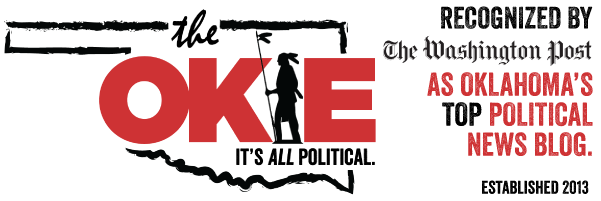OKOGA Blasts Legislature’s Efforts To Raise GPT Rate
FOR IMMEDIATE RELEASE
OKOGA STATEMENT ON SENATE BILL TO RAISE EFFECTIVE GROSS PRODUCTION TAX RATE
OKLAHOMA CITY (May 15, 2017) – The Oklahoma Oil and Gas Association (OKOGA) released the following statement today on HB 2360, a revenue raising bill that passed the Senate today to raise the effective gross production tax rate on the oil and natural gas industry:
“Once again, the Legislature is looking to the oil and natural gas industry to dig the state out of its budget crisis,” said Chad Warmington, president of OKOGA. “Although the oil and natural gas industry is the single largest direct revenue contributor to the state budget, this is the third time in four years the state has moved to increase the industry’s taxes. The Senate bill to end all remaining oil and natural gas rebates will raise our effective gross production tax rate, a policy we’ve been opposed to all session. If this bill becomes law, the state will have increased our taxes by more than $150 million over the last two years. It is long past time for the state to diversify its revenue streams instead of continuing to increase its dependency on a single industry.”
HB 2360 will need to be considered by the Oklahoma House of Representatives.
Fast Facts:
- For seven consecutive months, the gross production tax collection on oil and natural gas has been higher than the previous year.
- Oklahoma currently has the second largest number of drilling rigs nationwide operating in the state.
- In 2014, the Legislature passed legislation that increased the tax rate on new horizontal wells by 100 percent. This legislation reformed the gross production tax rate to a two-tiered rate, and the legislation immediately sunset six oil and natural gas rebates. This legislation was implemented on July 1, 2015, and as of today, new wells are now taxed at 2 percent for 36 months and 7 percent thereafter for the life of a well, which is 30 years or more.
- In 2016, the Legislature passed legislation to place a cap on the oil and natural gas rebate for economically at-risk wells, raising an additional $120 million in revenue from the oil and natural gas industry to help balance the budget.
- The Senate revenue bill will end all five remaining oil and natural gas rebates on July 1, 2017, which were slated to sunset in 2020. The Oklahoma Tax Commission has indicated that this will score at a minimum of $46.3 million.
- Unlike what has been promoted by some at the capitol, the Oklahoma Tax Commission has said that increasing the gross production tax from 2 percent to 5 percent on new wells will get the state an additional $20 million in FY’18.
- Oklahoma’s effective gross production tax rate in FY’17 is 3.2 percent. The State Chamber of Oklahoma’s Research Foundation published an economic impact study in September 2016 that remains the only recent study strictly comparing gross production tax rates (or severance taxes) for each neighboring oil and natural gas producing state. The study found Texas’s effective rate to be 3.7 percent; Kansas is 2.8 percent; and Colorado is 2.2 percent.
Background
The Oklahoma Oil & Gas Association, founded in 1919, is the oldest energy trade association in the United States. Nearly a century later, the association remains dedicated to the advancement and improvement of the oil and natural gas industry within the state of Oklahoma and throughout the nation. It is a non-profit association composed of oil and gas producers, operators, purchasers, pipelines, transporters, processors, refiners, marketers and service companies which represent a substantial sector of the oil and natural gas industry within Oklahoma. The activities of OKOGA include support for legislative and regulatory measures designed to promote both the well-being and best interests of the citizens of this state and a strong and vital petroleum industry within the State of Oklahoma and throughout the United States.
###

